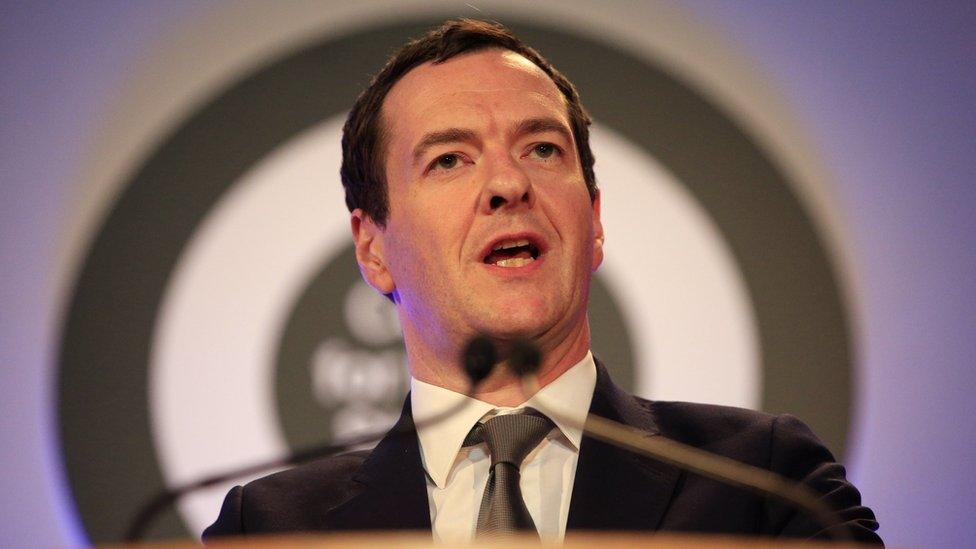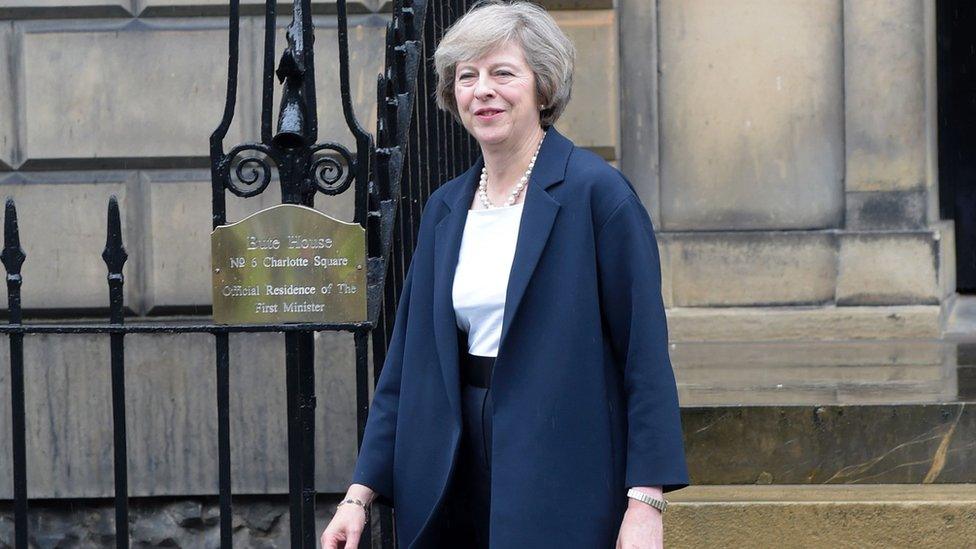Osborne comes out of the shadows
- Published
- comments

George Osborne's Margaret Thatcher Lecture on Monday night is his most substantial attempt since he lost his job at laying out the political philosophy that guided his time as Chancellor.
And there are a number of big messages at its heart.
First, the government must retain fiscal responsibility if the economy is to grow and keep the faith of international investors.
And, as the UK runs a significant trade deficit, that faith is important.
Second, it must be "pro-business".
Third, it should retain its enthusiasm for the "Northern Powerhouse", which he says he does not want to "let go" of.
Fourth, it should reach out to the world, and forge as close a link "as possible" to the rest of the European Union.
Some might read in that list a clear note of warning to members of the new government.
That's probably over-doing it. But it is worth noting, with ministers saying "Brexit means Brexit", there is still a long way to go before voters know the shape of Britain's relationship with the EU.

And the new Prime Minister has also said she is dropping the 2020 target to balance the public finances and end the deficit.
Theresa May may have had little room for manoeuvre, given many economists believe economic growth will slow due to the uncertainty around the referendum result.
And a cooling economy means lower levels of national income and tighter public finances.
More borrowing
Mr Osborne says he agrees. Brexit has made the target impossible to achieve.
Mrs May's move does, though, open the door to more borrowing - particularly as Philip Hammond, of whom Mr Osborne is a fan, has suggested he does not want taxes to rise.
Here are Mr Osborne's comments on the issue of borrowing, explained via the approach the government took after 2010.
"We were not going to spend ever-increasing sums of borrowed public money trying to support the economy. We were going to create the conditions for a private sector recovery.
"And the first condition for that is fiscal stability: business can't invest or hire people or grow, if they think that the country will not be able to pay its way in the world."
Many thought Mr Osborne would cancel tonight's speech at the Centre for Policy Studies once he had been - to all intents and purposes - sacked as the resident of Number 11.
The fact he did not says much about Mr Osborne and his ambitions for a prominent future.